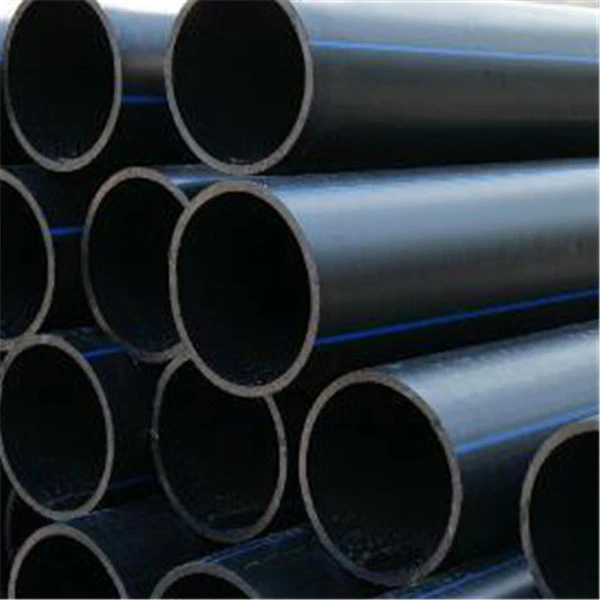डिसेंबर . 07, 2024 14:20 Back to list
electrical pvc pipe
Understanding Electrical PVC Pipes A Comprehensive Overview
Electrical PVC (Polyvinyl Chloride) pipes have revolutionized the way electrical conduits and wiring systems are constructed. These pipes are essential components in various electrical installations, offering a safe, durable, and cost-effective solution for safeguarding electrical cables and equipment. This article delves into the key features, benefits, applications, and considerations regarding electrical PVC pipes.
What are Electrical PVC Pipes?
Electrical PVC pipes are rigid plastic conduits designed specifically for housing electrical wires and cables. They comply with safety regulations and standards to ensure that electrical installations are both secure and reliable. Made from a high-quality polymer, these pipes are lightweight yet strong, making them an ideal choice for a range of electrical applications.
Key Features
1. Corrosion Resistance One of the standout features of PVC pipes is their resistance to corrosion. They do not rust or corrode like metal pipes, which can degrade over time due to moisture, chemicals, or environmental exposure.
2. Non-Conductive Electrical PVC pipes are non-conductive, providing essential insulation for electrical wiring. This feature helps prevent electrical hazards, ensuring that the risk of short circuits and electrical shocks is minimized.
3. Lightweight and Easy to Install Compared to metal conduits, PVC pipes are significantly lighter, making them easier to handle and install. This reduces labor costs and time during construction or renovation.
4. Fire Resistance While PVC pipes can melt at high temperatures, they are less likely to burn compared to other materials. Many PVC pipes also come with added flame retardants, enhancing their fire resistance.
5. Versatile Sizes and Types Electrical PVC pipes come in various diameters and thicknesses, allowing flexibility in design and installation to accommodate different cable sizes and applications.
Benefits of Using Electrical PVC Pipes
1. Safety and Compliance Electrical PVC pipes meet industry safety standards and specifications, making them suitable for residential, commercial, and industrial electrical installations. They help ensure that electrical systems operate safely and efficiently.
electrical pvc pipe

2. Cost-Effective The initial investment in electrical PVC piping is generally lower than that of metal conduits. Moreover, their low maintenance costs over time make them a cost-effective option in the long run.
3. Weather Resistance Since PVC is unaffected by weather conditions, these pipes are suitable for outdoor installations. They can withstand UV radiation, making them ideal for exposed areas.
4. Easier Modifications In the event of upgrades or changes in electrical systems, PVC pipes can be easily cut, reconfigured, or expanded as necessary without significant difficulties.
Applications of Electrical PVC Pipes
Electrical PVC pipes are versatile and find applications in numerous fields, including
- Residential Wiring Commonly used in homes for routing electrical wiring, ensuring that cables are protected from physical damage. - Commercial Buildings Widely utilized in offices and retail spaces to distribute electrical power safely throughout the building. - Industrial Sites Employed in factories and warehouses where robust electrical systems are necessary, providing pathways for power supply and control cables. - Telecommunication Used for housing communication cables, including fiber optics and data transmission lines. Considerations When Choosing Electrical PVC Pipes
While electrical PVC pipes offer numerous advantages, there are a few considerations to keep in mind
1. Temperature Limitations PVC pipes have temperature limitations and may not perform well in extremely hot environments. Always check the manufacturer's specifications regarding temperature ratings.
2. Not Suitable for High Voltage For high-voltage applications, specialized conduits may be necessary to ensure safety and compliance with regulations.
3. Installation Practices Proper installation practices should be followed to maximize the effectiveness of PVC pipes. This includes using appropriate fittings, ensuring secure connections, and following local codes.
Conclusion
Electrical PVC pipes are an indispensable component of modern electrical systems, providing a combination of safety, durability, and cost-effectiveness. Their resistance to corrosion and non-conductive properties make them ideal for a wide range of applications, from residential wiring to industrial electrical installations. When considering electrical conduits for your next project, electrical PVC pipes may just be the right solution to meet your needs, ensuring a safer and more efficient electrical infrastructure.
-
Durable PP Rigid Sheet: Lightweight, Chemical Resistant Solutions
NewsAug.21,2025
-
PVC Grey Sheet for Extraction: Chemical Resistant & Durable
NewsAug.19,2025
-
Durable PVC Pipe Fittings for Plumbing & Irrigation Needs
NewsAug.18,2025
-
HDPE Steel Belt Reinforced Spiral Corrugated Pipe | High Strength
NewsAug.17,2025
-
HDPE Pipe Fittings: Durable, Leak-Proof Solutions
NewsAug.16,2025
-
Premium CPVC Sheet: High-Temp & Chemical Resistant Solutions
NewsAug.15,2025

